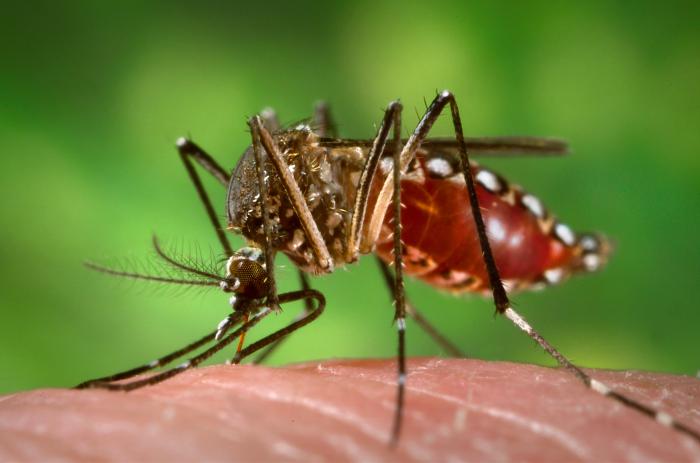- Blog
- Sustainable Economic Systems
- Floridians face genetically engineered mosquito threat
Floridians face genetically engineered mosquito threat

Donate Now!
Your contribution will benefit Friends of the Earth.
Stay Informed
Thanks for your interest in Friends of the Earth. You can find information about us and get in touch the following ways:
A private firm is planning to release potentially harmful genetically engineered mosquitoes in the Florida Keys as early as January, endangering human health and the environment in what would become the first-ever U.S. release of these engineered bugs.
The genetically engineered mosquitoes, Aedes aegypti, are produced by UK-based biotechnology company Oxitec so their offspring will die at a young age in an effort to lower mosquito populations and limit the spread of dengue fever. While attempts to limit the spread of disease are laudable, health, environmental and ethical challenges face what would be the first-ever release of genetically engineered mosquitoes in the U.S.
Genetically engineered mosquitoes have already been released by Oxitec in the Cayman Islands, Malaysia and Brazil. Despite claims that its mosquitoes are sterile and have eradicated dengue fever the mosquitoes are in fact fertile and Oxitec has never successfully eradicated dengue fever from any population. The company has only shown its technology can reduce mosquito populations in the immediate term in controlled settings. Oxitec has not proven such population reductions lead to disease eradication.
The United States could be the next testing ground for Oxitec. The company plans to release its genetically engineered mosquitoes in Key West as early as January 2012 – pending regulatory approval. Oxitec intends to release 5,000 to 10,000 genetically engineered mosquitoes over a two week period into an undisclosed 36-square-acre block – likely near the Key West Cemetery.
Many questions about genetically engineered mosquitoes remain unanswered:
- Who will regulate their release and who will be legally and financially liable if something goes wrong?
- What impact will a major decrease in Aedes aegypti population have on the local food chain and ecosystem? Could other more dangerous bugs take its place, such as the Asian Tiger mosquito which is one of the most invasive species on the planet?
- Will Oxitec be required to obtain the free and informed consent of Key West residents (unlike in the Cayman Islands where “no public consultation was undertaken on potential risks and informed consent was not sought from local people”)?
- What happens when Oxitec’s mosquitoes survive into adulthood (since 3–4 percent have been found to do just that despite the flaw engineered into their genome)?
- Although Oxitec plans to only release male genetically engineered mosquitoes, what are the risks if female genetically engineered mosquitoes are released (since the company sorts them by hand and up to 0.5 percent of the released insects are in fact female)? Since females bite humans, how could this impact human health? Will it hamper efforts to limit the spread of dengue fever?
- Since Oxitec cannot completely eliminate a mosquito population will countries and communities become dependent on Oxitec for the indefinite future? What economic impacts will such dependence have on communities?
Until these and many other questions are answered it would be premature for Florida or the U.S. government to approve Oxitec’s planned release of genetically engineered mosquitoes in the Florida Keys or anywhere else in the U.S.
Check out our new fact sheet to learn more about these risks and click here to send your own questions and concerns to the Florida Keys Mosquito Control District to help ensure the Florida Keys aren’t allowed to turn into Oxitec’s next lab experiment.
**UPDATE**
On January 4, 2012 we received news that the release of genetically engineered mosquitoes in the Florida Keys has been delayed at least until late spring 2012. This small victory will buy us time to keep asking these hard questions and ensuring genetically engineered mosquitoes are not released into the wild until they are proven to be safe for people and safe for the environment.
